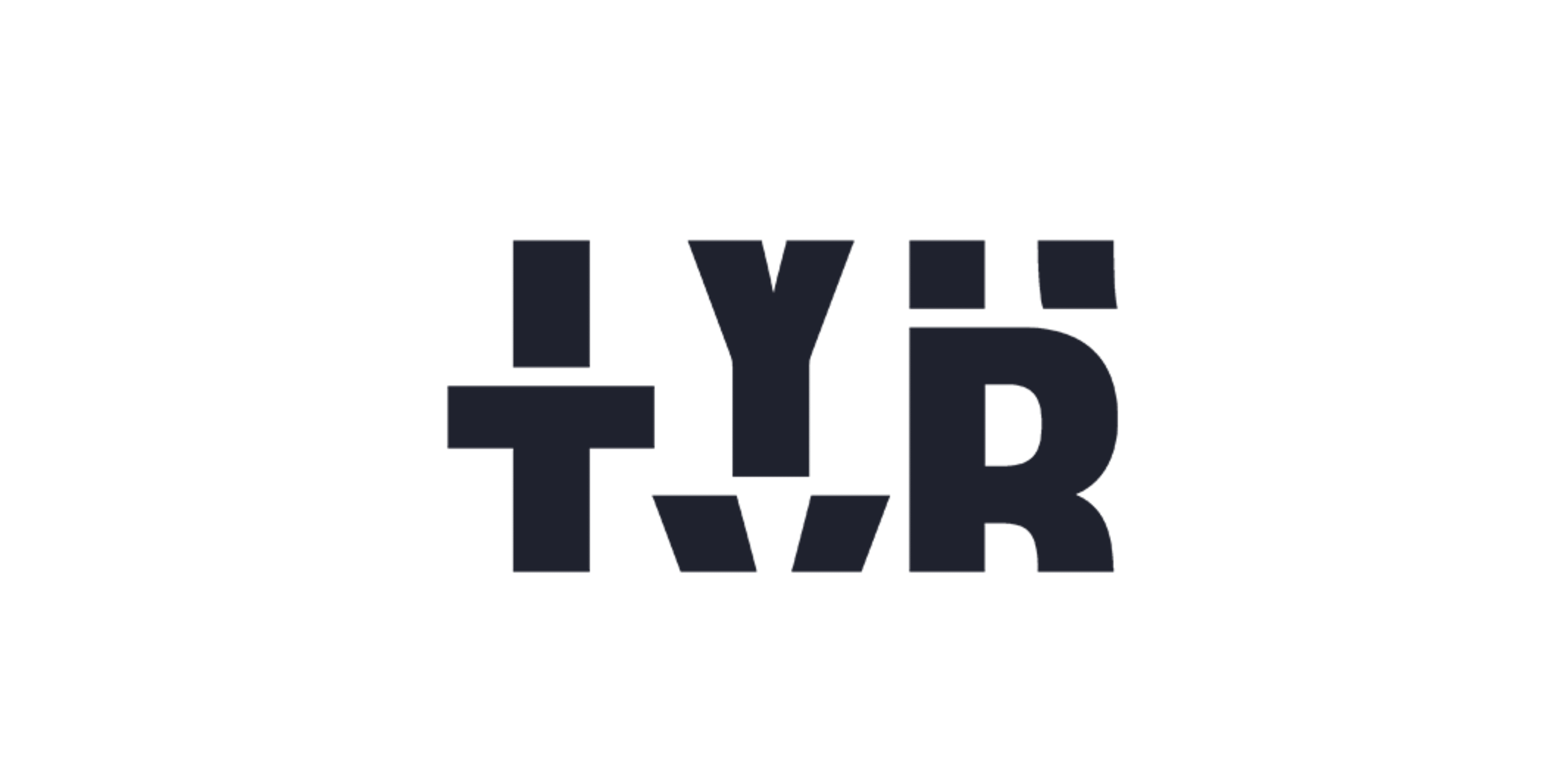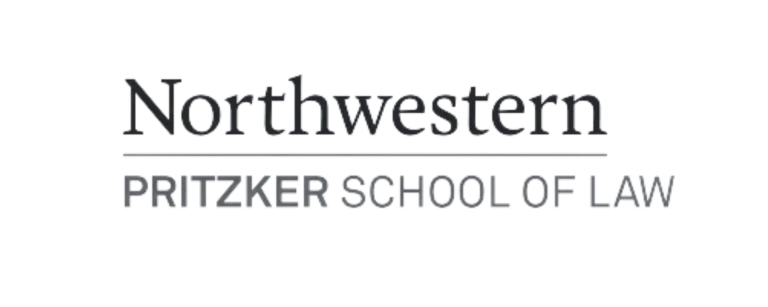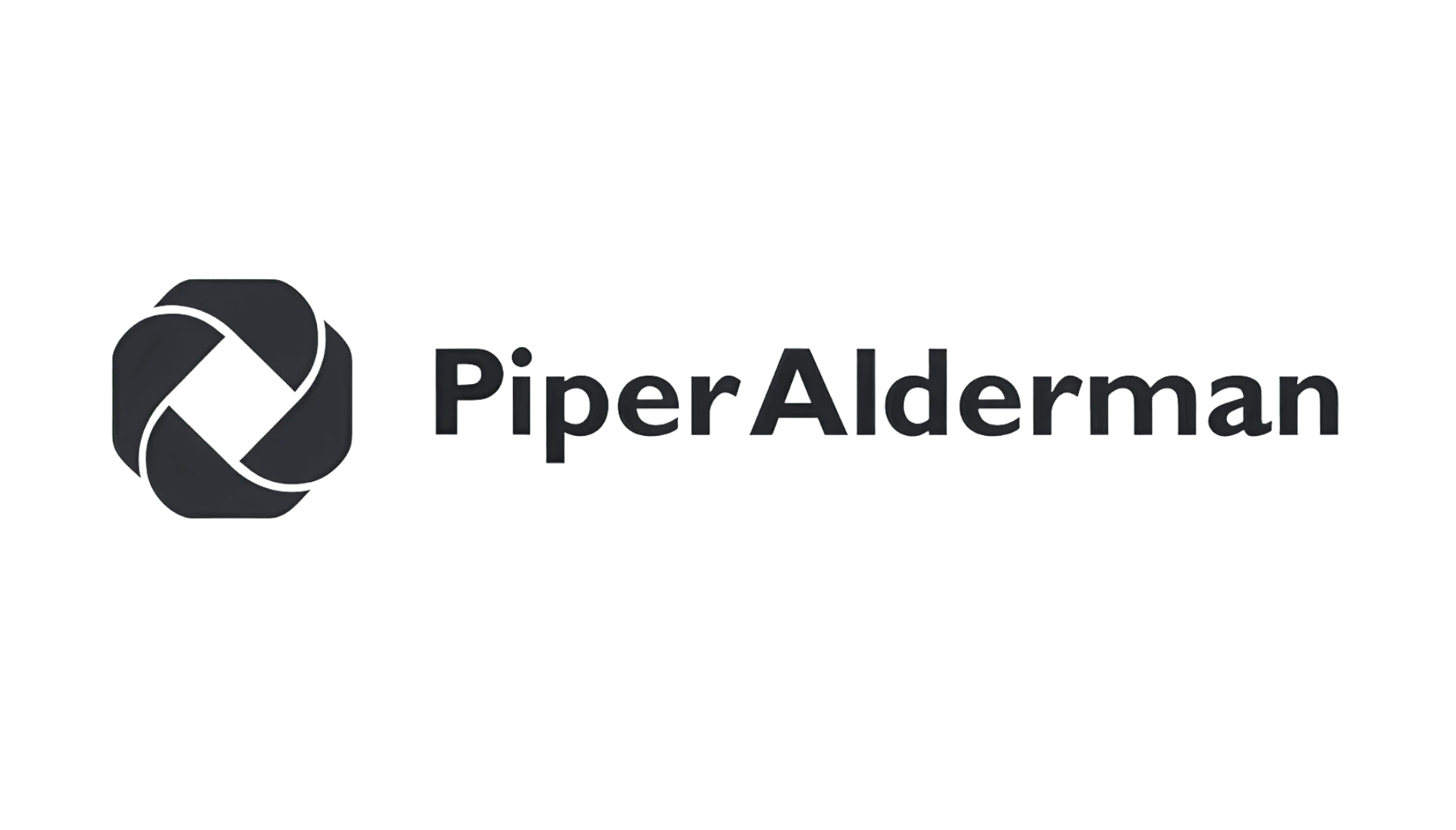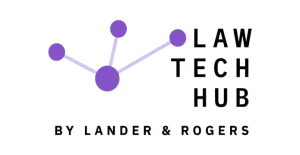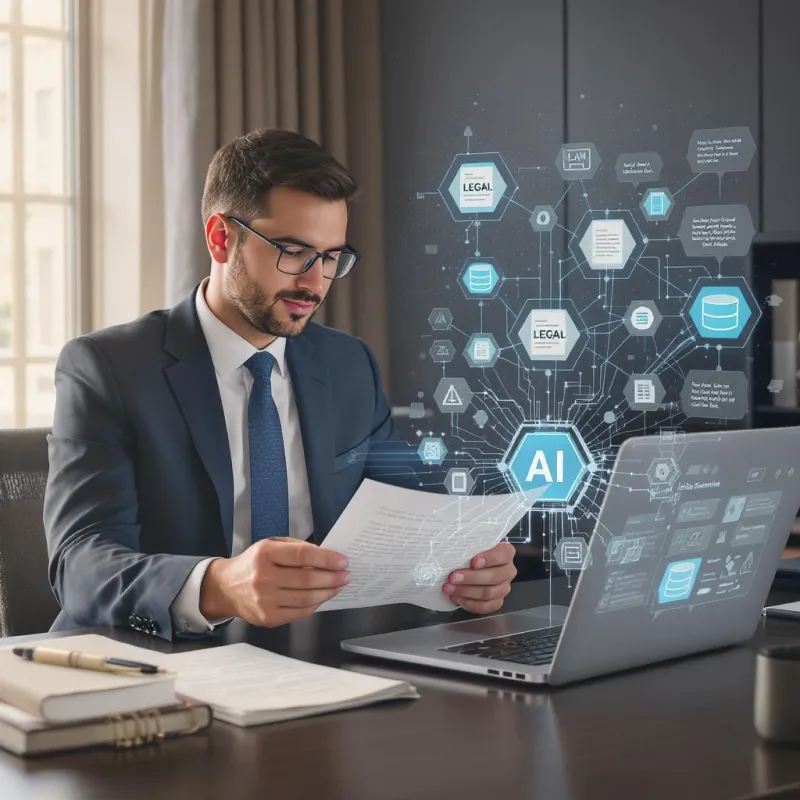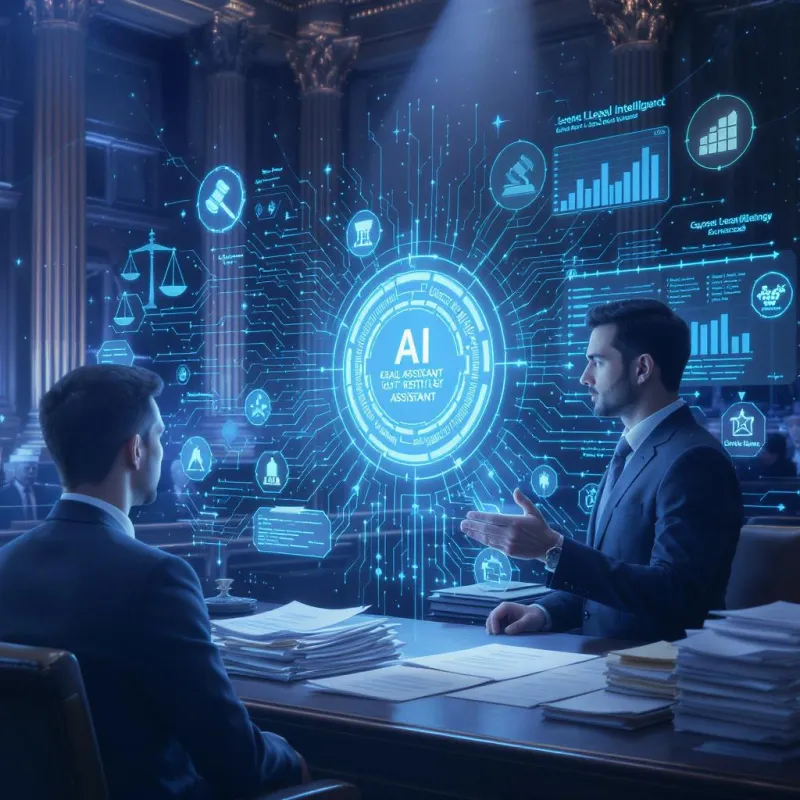Used by legal professionals and researchers in
Features
Legal AI Features
Designed To Streamline Your Entire Litigation Process
NeXa
Your AI Legal Research Assistant with Expert-Level Analysis
- • Chatbot
- • Deep Research
- • Compare Jurisdictions
- • Documents Insight
- • Contract Due Diligence
- • Find Precedents
- • Draft a Contract
- • Summarize a Caselaw
- • Build an Argument
- • Draft a Legal Memo
Trial Prep
Complete Litigation Management & Trial Strategy Platform
Revolutionary litigation management system that transforms legal research, case analysis, and trial preparation. From initial case review to post-trial submissions, streamline your entire litigation workflow with AI precision.
Chronovault
AI-Powered Case Timeline Intelligence & Evidence Mapping System
Revolutionary case analysis and timeline intelligence system that provides legal professionals with decisive competitive advantages. This AI-powered platform automatically analyzes complex case documents, identifies key players and relationships, and maps critical events to relevant legal principles for comprehensive case understanding.
Who We Serve
Our AI Legal Assistant for Every Practice
Advanced AI legal platform designed for legal professionals seeking efficient, accurate, and scalable legal assistance. Streamline your practice with tailored solutions for every stage of your legal career.
Solo Practitioners
Comprehensive AI legal assistant designed for independent lawyers who need powerful tools without enterprise complexity.
- • Affordable legal research and case analysis
- • Automated document review and drafting
- • Personal legal question assistance
- • Client communication templates
- • Time tracking and billing support
Law Firms
Scalable AI legal solutions for small, medium, and large law firms looking to enhance productivity and competitive advantage.
- • Team collaboration and workflow management
- • Advanced case management and trial preparation
- • Multi-jurisdiction legal research capabilities
- • Client reporting and case progress tracking
- • Enterprise-grade security and compliance
In-house Legal Departments
Specialized AI tools for corporate legal teams managing contracts, compliance, and regulatory requirements efficiently.
- • Contract management and risk analysis
- • Regulatory compliance monitoring
- • Corporate governance documentation
- • Legal spend optimization and reporting
- • Integration with existing corporate systems
Transform Legal Practice with AI that Reduces 100+ Hour Tasks to Minutes
While you grab your morning coffee, NeXa completes contract analysis, legal research across millions of cases, and delivers comprehensive legal summaries with proper citations.
Strategic Partnerships
Trusted by Leading Legal Technology Partners
Collaborating with forward-thinking technology partners who share our vision of transforming legal practice through AI innovation and industry-leading solutions.

Security & Privacy
Security
Knowledge Center
Discover how AI Legal Assistant help in Law Firm
Testimonials
What Users Say About Our AI Legal Assistant
I love this. I tried it and it’s great. Thank you!
Farhan Mohammed Shah
Solicitor in Australia and Fiji
NexLaw didn’t just meet my high expectations, it exceeded them in every respect. It has become an invaluable asset to my practice.
Will M. Helixon
Founder, Law Office of Will M. Helixon | 31-Year Veteran Litigator
The NexLaw platform is a game changer, an amazing product, especially the TrialPrep feature…
Stace Hammond Lawyers
Special Counsel (New Zealand)
It's been interesting to use NexLaw, super cool tool that's worth using often!
Calvados + Woolf Lawyers
Paralegal (Australia)
It looks like it could be a very useful tool!
James Waite Law (Colorado)
Attorney (Corporate & Transactional)
I love this. I tried it and it’s great. Thank you!
Farhan Mohammed Shah
Solicitor in Australia and Fiji
The NexLaw platform is a game changer, an amazing product, especially the TrialPrep feature…
Stace Hammond Lawyers
Special Counsel (New Zealand)
It's been interesting to use NexLaw, super cool tool that's worth using often!
Calvados + Woolf Lawyers
Paralegal (Australia)
It looks like it could be a very useful tool!
James Waite Law (Colorado)
Attorney (Corporate & Transactional)
I love this. I tried it and it’s great. Thank you!
Farhan Mohammed Shah
Solicitor in Australia and Fiji
The NexLaw platform is a game changer, an amazing product, especially the TrialPrep feature…
Stace Hammond Lawyers
Special Counsel (New Zealand)
It's been interesting to use NexLaw, super cool tool that's worth using often!
Calvados + Woolf Lawyers
Paralegal (Australia)
I love this. I tried it and it’s great. Thank you!
Farhan Mohammed Shah
Solicitor in Australia and Fiji
NexLaw didn’t just meet my high expectations, it exceeded them in every respect. It has become an invaluable asset to my practice.
Will M. Helixon
Founder, Law Office of Will M. Helixon | 31-Year Veteran Litigator
The NexLaw platform is a game changer, an amazing product, especially the TrialPrep feature…
Stace Hammond Lawyers
Special Counsel (New Zealand)
It's been interesting to use NexLaw, super cool tool that's worth using often!
Calvados + Woolf Lawyers
Paralegal (Australia)
It looks like it could be a very useful tool!
James Waite Law (Colorado)
Attorney (Corporate & Transactional)
I love this. I tried it and it’s great. Thank you!
Farhan Mohammed Shah
Solicitor in Australia and Fiji
The NexLaw platform is a game changer, an amazing product, especially the TrialPrep feature…
Stace Hammond Lawyers
Special Counsel (New Zealand)
It's been interesting to use NexLaw, super cool tool that's worth using often!
Calvados + Woolf Lawyers
Paralegal (Australia)
It looks like it could be a very useful tool!
James Waite Law (Colorado)
Attorney (Corporate & Transactional)
I love this. I tried it and it’s great. Thank you!
Farhan Mohammed Shah
Solicitor in Australia and Fiji
The NexLaw platform is a game changer, an amazing product, especially the TrialPrep feature…
Stace Hammond Lawyers
Special Counsel (New Zealand)
It's been interesting to use NexLaw, super cool tool that's worth using often!
Calvados + Woolf Lawyers
Paralegal (Australia)
I love this. I tried it and it’s great. Thank you!
Farhan Mohammed Shah
Solicitor in Australia and Fiji
NexLaw didn’t just meet my high expectations, it exceeded them in every respect. It has become an invaluable asset to my practice.
Will M. Helixon
Founder, Law Office of Will M. Helixon | 31-Year Veteran Litigator
The NexLaw platform is a game changer, an amazing product, especially the TrialPrep feature…
Stace Hammond Lawyers
Special Counsel (New Zealand)
It's been interesting to use NexLaw, super cool tool that's worth using often!
Calvados + Woolf Lawyers
Paralegal (Australia)
It looks like it could be a very useful tool!
James Waite Law (Colorado)
Attorney (Corporate & Transactional)
I love this. I tried it and it’s great. Thank you!
Farhan Mohammed Shah
Solicitor in Australia and Fiji
The NexLaw platform is a game changer, an amazing product, especially the TrialPrep feature…
Stace Hammond Lawyers
Special Counsel (New Zealand)
It's been interesting to use NexLaw, super cool tool that's worth using often!
Calvados + Woolf Lawyers
Paralegal (Australia)
It looks like it could be a very useful tool!
James Waite Law (Colorado)
Attorney (Corporate & Transactional)
I love this. I tried it and it’s great. Thank you!
Farhan Mohammed Shah
Solicitor in Australia and Fiji
The NexLaw platform is a game changer, an amazing product, especially the TrialPrep feature…
Stace Hammond Lawyers
Special Counsel (New Zealand)
It's been interesting to use NexLaw, super cool tool that's worth using often!
Calvados + Woolf Lawyers
Paralegal (Australia)
I love this. I tried it and it’s great. Thank you!
Farhan Mohammed Shah
Solicitor in Australia and Fiji
NexLaw didn’t just meet my high expectations, it exceeded them in every respect. It has become an invaluable asset to my practice.
Will M. Helixon
Founder, Law Office of Will M. Helixon | 31-Year Veteran Litigator
The NexLaw platform is a game changer, an amazing product, especially the TrialPrep feature…
Stace Hammond Lawyers
Special Counsel (New Zealand)
It's been interesting to use NexLaw, super cool tool that's worth using often!
Calvados + Woolf Lawyers
Paralegal (Australia)
It looks like it could be a very useful tool!
James Waite Law (Colorado)
Attorney (Corporate & Transactional)
I love this. I tried it and it’s great. Thank you!
Farhan Mohammed Shah
Solicitor in Australia and Fiji
The NexLaw platform is a game changer, an amazing product, especially the TrialPrep feature…
Stace Hammond Lawyers
Special Counsel (New Zealand)
It's been interesting to use NexLaw, super cool tool that's worth using often!
Calvados + Woolf Lawyers
Paralegal (Australia)
It looks like it could be a very useful tool!
James Waite Law (Colorado)
Attorney (Corporate & Transactional)
I love this. I tried it and it’s great. Thank you!
Farhan Mohammed Shah
Solicitor in Australia and Fiji
The NexLaw platform is a game changer, an amazing product, especially the TrialPrep feature…
Stace Hammond Lawyers
Special Counsel (New Zealand)
It's been interesting to use NexLaw, super cool tool that's worth using often!
Calvados + Woolf Lawyers
Paralegal (Australia)
It looks like it could be a very useful tool!
James Waite Law (Colorado)
Attorney (Corporate & Transactional)
I love this. I tried it and it’s great. Thank you!
Farhan Mohammed Shah
Solicitor in Australia and Fiji
The NexLaw platform is a game changer, an amazing product, especially the TrialPrep feature…
Stace Hammond Lawyers
Special Counsel (New Zealand)
It's been interesting to use NexLaw, super cool tool that's worth using often!
Calvados + Woolf Lawyers
Paralegal (Australia)
It looks like it could be a very useful tool!
James Waite Law (Colorado)
Attorney (Corporate & Transactional)
I love this. I tried it and it’s great. Thank you!
Farhan Mohammed Shah
Solicitor in Australia and Fiji
The NexLaw platform is a game changer, an amazing product, especially the TrialPrep feature…
Stace Hammond Lawyers
Special Counsel (New Zealand)
It's been interesting to use NexLaw, super cool tool that's worth using often!
Calvados + Woolf Lawyers
Paralegal (Australia)
It looks like it could be a very useful tool!
James Waite Law (Colorado)
Attorney (Corporate & Transactional)
I love this. I tried it and it’s great. Thank you!
Farhan Mohammed Shah
Solicitor in Australia and Fiji
The NexLaw platform is a game changer, an amazing product, especially the TrialPrep feature…
Stace Hammond Lawyers
Special Counsel (New Zealand)
It's been interesting to use NexLaw, super cool tool that's worth using often!
Calvados + Woolf Lawyers
Paralegal (Australia)
It looks like it could be a very useful tool!
James Waite Law (Colorado)
Attorney (Corporate & Transactional)
It looks like it could be a very useful tool!
James Waite Law (Colorado)
Attorney (Corporate & Transactional)
I love this. I tried it and it’s great. Thank you!
Farhan Mohammed Shah
Solicitor in Australia and Fiji
The NexLaw platform is a game changer, an amazing product, especially the TrialPrep feature…
Stace Hammond Lawyers
Special Counsel (New Zealand)
It's been interesting to use NexLaw, super cool tool that's worth using often!
Calvados + Woolf Lawyers
Paralegal (Australia)
It looks like it could be a very useful tool!
James Waite Law (Colorado)
Attorney (Corporate & Transactional)
I love this. I tried it and it’s great. Thank you!
Farhan Mohammed Shah
Solicitor in Australia and Fiji
The NexLaw platform is a game changer, an amazing product, especially the TrialPrep feature…
Stace Hammond Lawyers
Special Counsel (New Zealand)
It's been interesting to use NexLaw, super cool tool that's worth using often!
Calvados + Woolf Lawyers
Paralegal (Australia)
It looks like it could be a very useful tool!
James Waite Law (Colorado)
Attorney (Corporate & Transactional)
I love this. I tried it and it’s great. Thank you!
Farhan Mohammed Shah
Solicitor in Australia and Fiji
The NexLaw platform is a game changer, an amazing product, especially the TrialPrep feature…
Stace Hammond Lawyers
Special Counsel (New Zealand)
It's been interesting to use NexLaw, super cool tool that's worth using often!
Calvados + Woolf Lawyers
Paralegal (Australia)
It looks like it could be a very useful tool!
James Waite Law (Colorado)
Attorney (Corporate & Transactional)
It looks like it could be a very useful tool!
James Waite Law (Colorado)
Attorney (Corporate & Transactional)
I love this. I tried it and it’s great. Thank you!
Farhan Mohammed Shah
Solicitor in Australia and Fiji
The NexLaw platform is a game changer, an amazing product, especially the TrialPrep feature…
Stace Hammond Lawyers
Special Counsel (New Zealand)
It's been interesting to use NexLaw, super cool tool that's worth using often!
Calvados + Woolf Lawyers
Paralegal (Australia)
It looks like it could be a very useful tool!
James Waite Law (Colorado)
Attorney (Corporate & Transactional)
I love this. I tried it and it’s great. Thank you!
Farhan Mohammed Shah
Solicitor in Australia and Fiji
The NexLaw platform is a game changer, an amazing product, especially the TrialPrep feature…
Stace Hammond Lawyers
Special Counsel (New Zealand)
It's been interesting to use NexLaw, super cool tool that's worth using often!
Calvados + Woolf Lawyers
Paralegal (Australia)
It looks like it could be a very useful tool!
James Waite Law (Colorado)
Attorney (Corporate & Transactional)
I love this. I tried it and it’s great. Thank you!
Farhan Mohammed Shah
Solicitor in Australia and Fiji
The NexLaw platform is a game changer, an amazing product, especially the TrialPrep feature…
Stace Hammond Lawyers
Special Counsel (New Zealand)
It's been interesting to use NexLaw, super cool tool that's worth using often!
Calvados + Woolf Lawyers
Paralegal (Australia)
It looks like it could be a very useful tool!
James Waite Law (Colorado)
Attorney (Corporate & Transactional)
It looks like it could be a very useful tool!
James Waite Law (Colorado)
Attorney (Corporate & Transactional)
I love this. I tried it and it’s great. Thank you!
Farhan Mohammed Shah
Solicitor in Australia and Fiji
The NexLaw platform is a game changer, an amazing product, especially the TrialPrep feature…
Stace Hammond Lawyers
Special Counsel (New Zealand)
It's been interesting to use NexLaw, super cool tool that's worth using often!
Calvados + Woolf Lawyers
Paralegal (Australia)
It looks like it could be a very useful tool!
James Waite Law (Colorado)
Attorney (Corporate & Transactional)
I love this. I tried it and it’s great. Thank you!
Farhan Mohammed Shah
Solicitor in Australia and Fiji
The NexLaw platform is a game changer, an amazing product, especially the TrialPrep feature…
Stace Hammond Lawyers
Special Counsel (New Zealand)
It's been interesting to use NexLaw, super cool tool that's worth using often!
Calvados + Woolf Lawyers
Paralegal (Australia)
It looks like it could be a very useful tool!
James Waite Law (Colorado)
Attorney (Corporate & Transactional)
I love this. I tried it and it’s great. Thank you!
Farhan Mohammed Shah
Solicitor in Australia and Fiji
The NexLaw platform is a game changer, an amazing product, especially the TrialPrep feature…
Stace Hammond Lawyers
Special Counsel (New Zealand)
It's been interesting to use NexLaw, super cool tool that's worth using often!
Calvados + Woolf Lawyers
Paralegal (Australia)
It looks like it could be a very useful tool!
James Waite Law (Colorado)
Attorney (Corporate & Transactional)
FAQ
Frequently Asked Questions
Find quick answers to common questions about us!
What is NexLaw and how does it work?
NexLaw is an innovative legal AI company that aims to streamline the entire litigation process. Here's how it works:
- NexLaw's TrialPrep simplifies the entire litigation process, from initial case analysis to final submissions, dramatically reducing the time required for trial prep from 100 hours to just minutes.
- NexLaw leverages AI technology to provide valuable insights and recommendations for legal discussions, ensuring comprehensive analysis of legal precedent and rapid extraction of in-depth case information.
- Nexlaw's AI-powered global legal knowledge offers advanced search capabilities for quick and accurate research from all courts across the US, UK, Australia, Canada, Malaysia, New Zealand, and Singapore.
- Its AI-driven legislative insight provides immediate access to a wide array of statutes, regulations, and legislative materials across various jurisdictions worldwide.
- NexLaw's Contract Review feature streamlines the contract review process by identifying crucial elements, mitigating potential risks, enriching negotiation strategy with AI insights, and ensuring compliance through detailed scrutiny.
- With NexLaw's Legal Writer feature, users can harness expert legal knowledge to craft a wide range of legal documents, including letters of demands, agreements, legal arguments, and legal research memos, with ease and precision.
How does NexLaw’s legal AI platform ensure the security of sensitive client data?
At NexLaw, we prioritize the security and privacy of client data above all else. Our privacy-first approach ensures confidentiality through a private cloud infrastructure and strict access control. Robust encryption standards and granular access control protect data against unauthorized access. We use data only in aggregate form for statistical analysis and assure data sovereignty to clients. Our secure file uploader maintains privacy while generating precise case summaries, empowering legal professionals worldwide with peace of mind. With NexLaw, confidentiality and security are guaranteed.
What cloud provider does NexLaw, a legal platform, utilize for its cloud storage, ensuring secure and reliable storage for legal information on its platform?
NexLaw, a legal platform, is using Amazon Web Services (AWS) for its cloud storage. All data on NexLaw Cloud is stored in Amazon Web Services, which is certified ISO 27001:2013 and complies with SOC 1, SOC 2, and SOC 3 standards. This integration with AWS ensures secure and reliable storage for legal information on the NexLaw Cloud platform.
Where does NexLaw acquire its legal data from and what sources contribute to their comprehensive database?
NexLaw gathers legal data from a variety of reputable sources globally, including news articles, government websites, federal records centers, and other reliable publishers.
Can NexLaw assist with finding and analyzing legal precedents?
Yes, NexLaw can assist with finding and analyzing legal precedents. You can access the feature in the Precedent Report Section in the Case Law Search. This feature allows legal professionals to track and analyze historical court decisions relevant to selected cases, aiding in formulating more effective legal arguments and strategies. The Precedent Report feature compiles critical data, such as relevant precedents, courts, judgment dates, and countries, into a user-friendly interface for efficient navigation and comparison of various precedents. It offers a comprehensive analysis of legal cases, showcasing similar cases, top cited precedents, frequently mentioned statutes, temporal and geographical distribution of cases, aiding in comprehensive case research and strategy development.
How comprehensive is NexLaw's coverage of case law and legislation?
NexLaw's Legal AI platform spans a wide range of practice areas from commercial to criminal law, serving the needs of legal professionals not only in the US, UK, Australia, Canada, Malaysia, New Zealand, and Singapore but also expanding its reach to other countries soon. NexLaw’s platform covers both Common and American Laws, offering comprehensive legal research and drafting capabilities with access to major Commonwealth countries and US statutes, published federal case law, legislation, and much more.
What sets NexLaw apart from its competitors in the legal tech industry?
NexLaw distinguishes itself by offering a more holistic approach specifically focused on trial preparation with its TrialPrep, comprehensive functionality, privacy-first approach, global coverage, user-friendly interface, and commitment to innovation, making us a top provider of legal AI solutions.
- TrialPrep: The first TrialPrep that simplify research, analyze case law, and formulate strategies with AI precision from case analysis to trial preparation.
- Comprehensive AI Solutions: Streamline legal practice with tools for advanced search capabilities, simplified legal research, streamlined contract review, automated legal content drafting, AI-powered summarization, and resolution of legal queries, among other features.
- Privacy-First Technology: Cutting-edge privacy measures ensure data protection, setting us apart in the market.
- Global Coverage: Access legal resources from major Commonwealth countries and the US for comprehensive legal insights.
- User-Friendly Interface: Intuitive design enables easy navigation, facilitating quick adoption for all users.
- Continuous Innovation: Regular updates based on user feedback keep NexLaw at the forefront of legal tech.

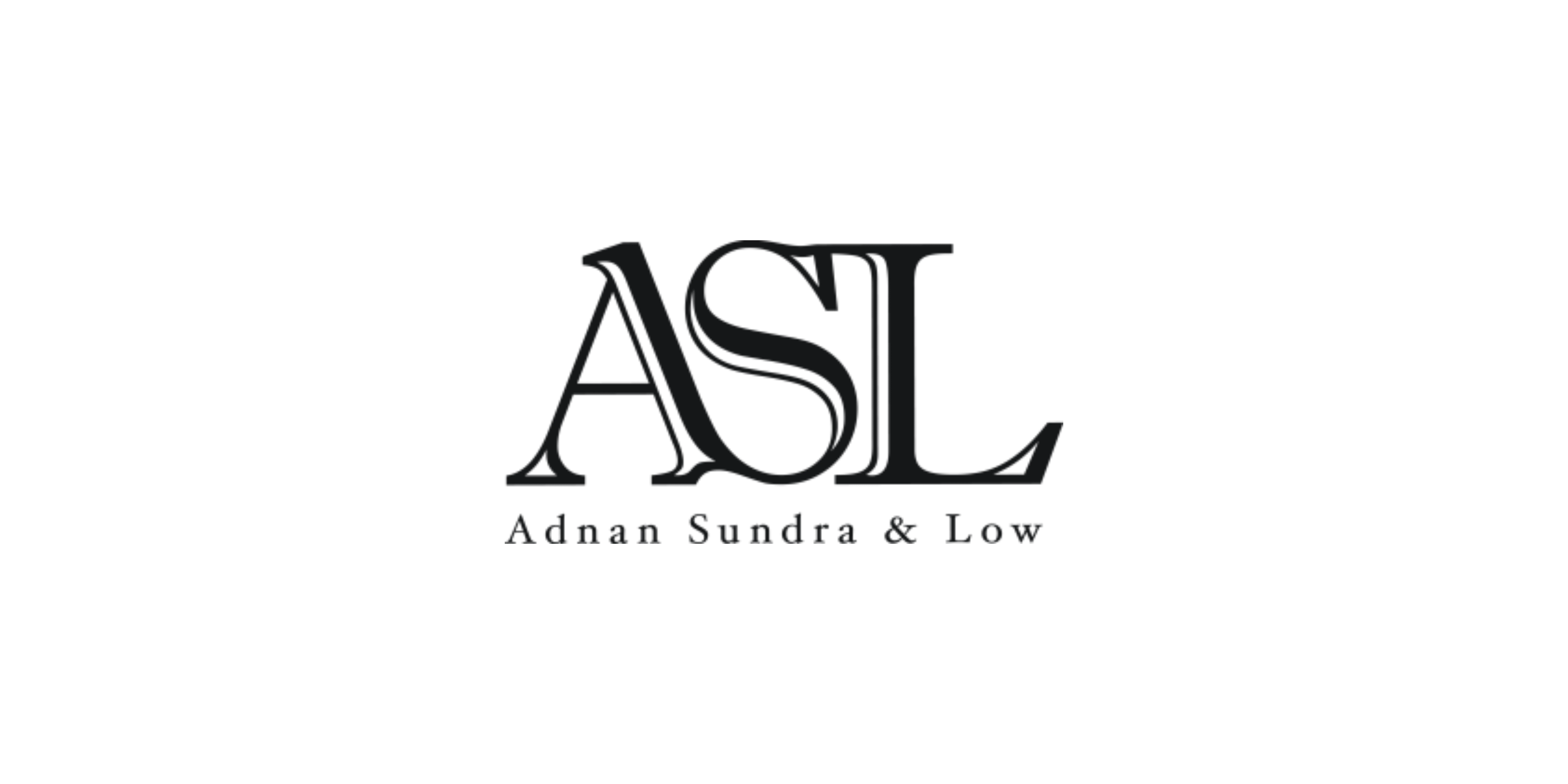


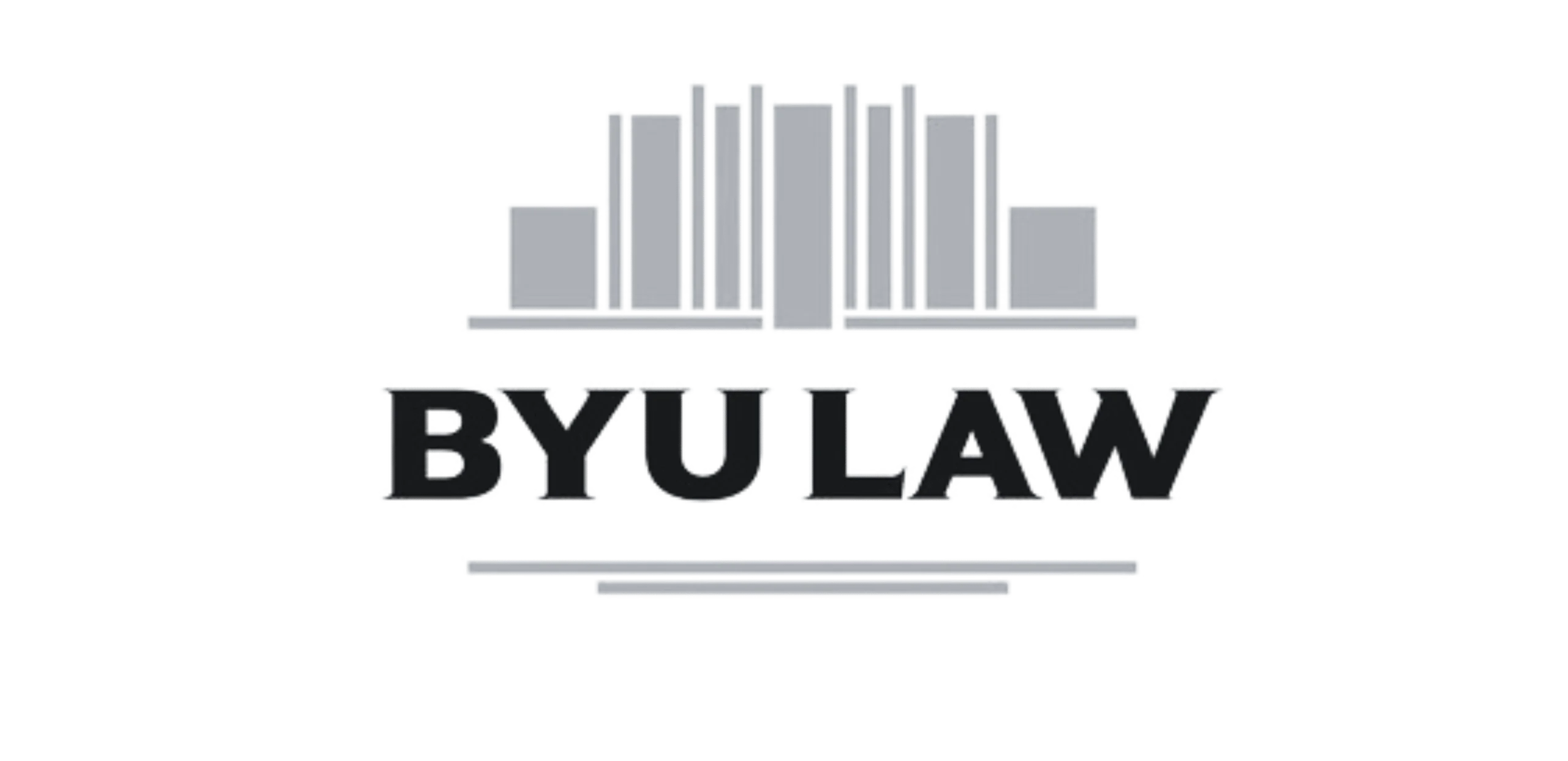

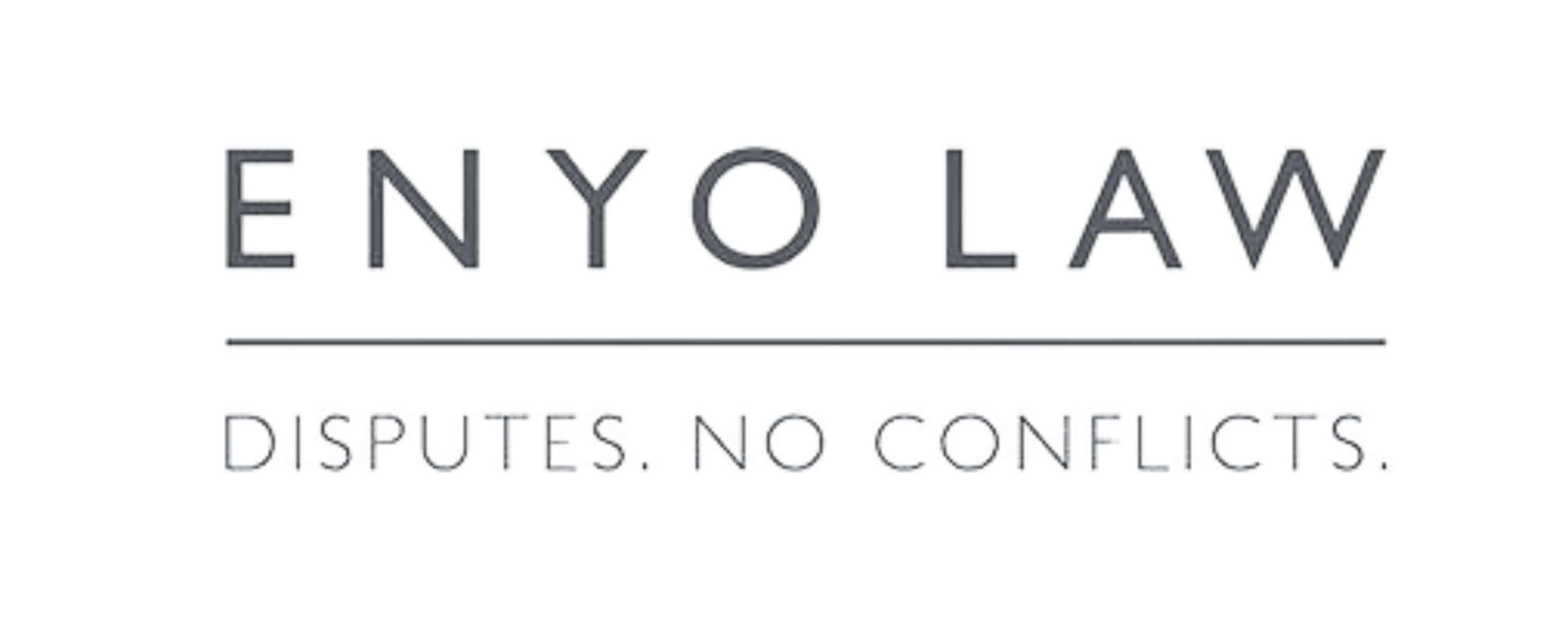










.webp)

